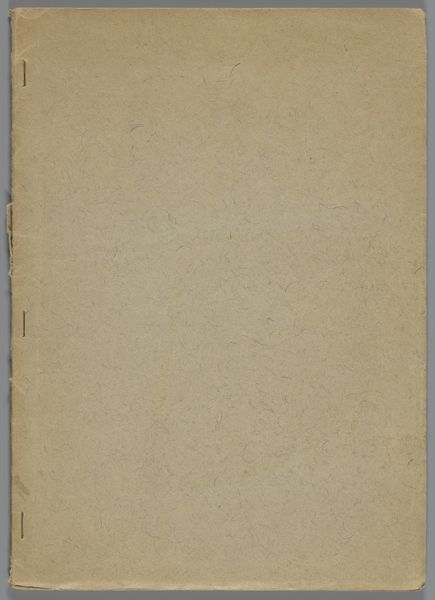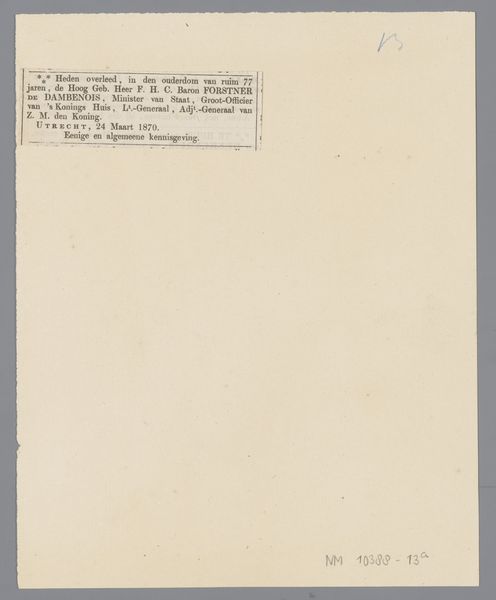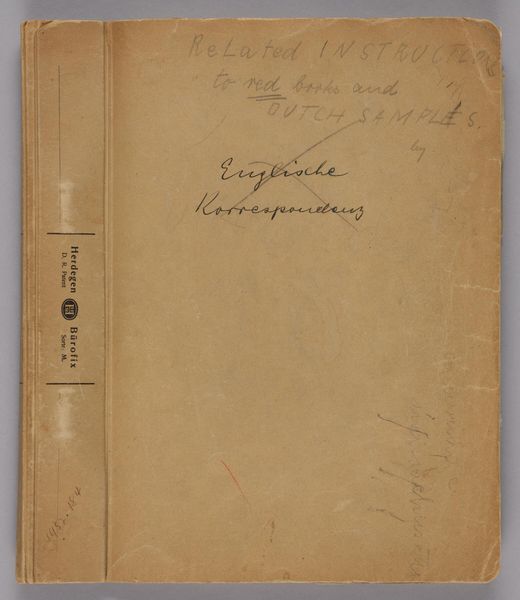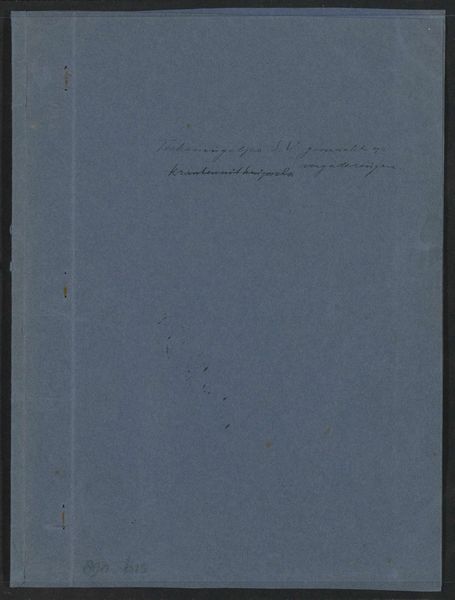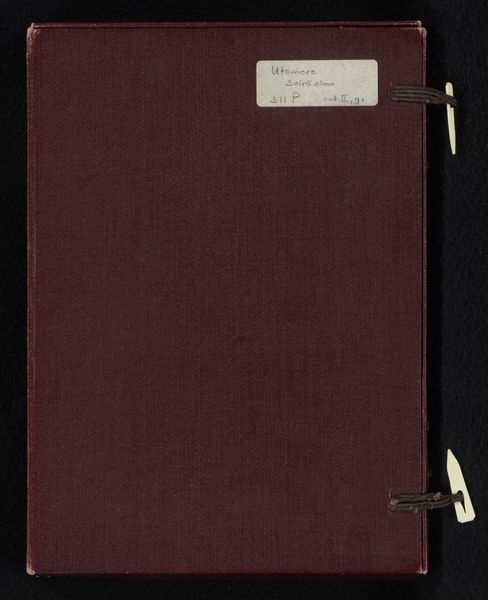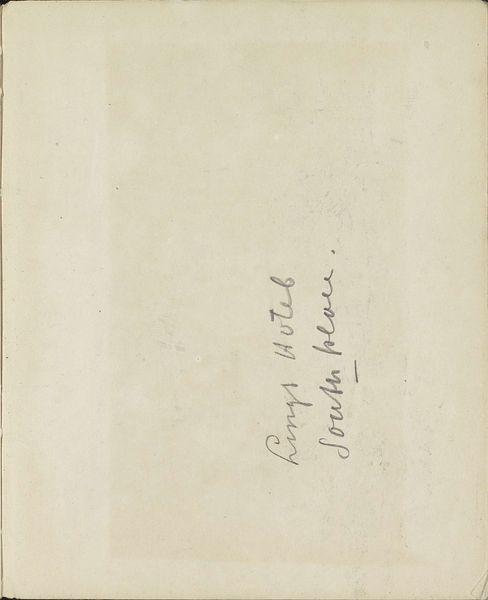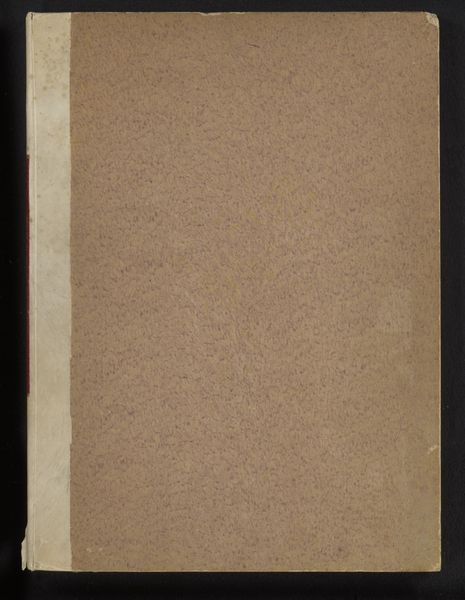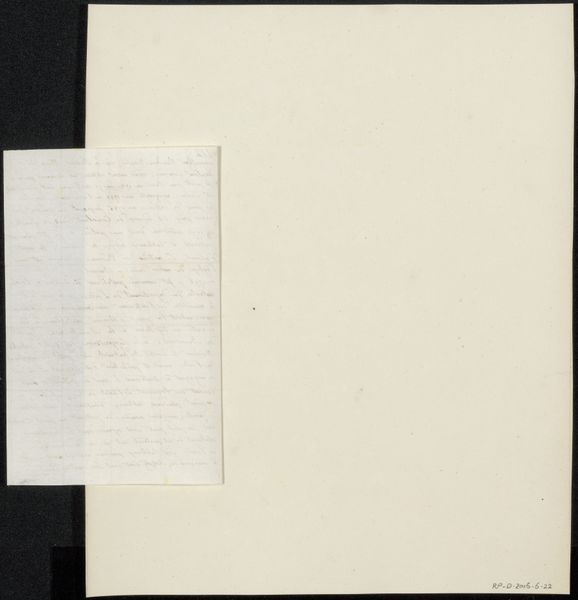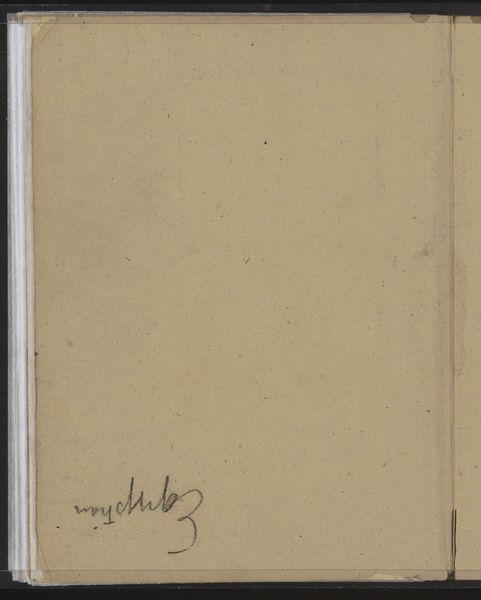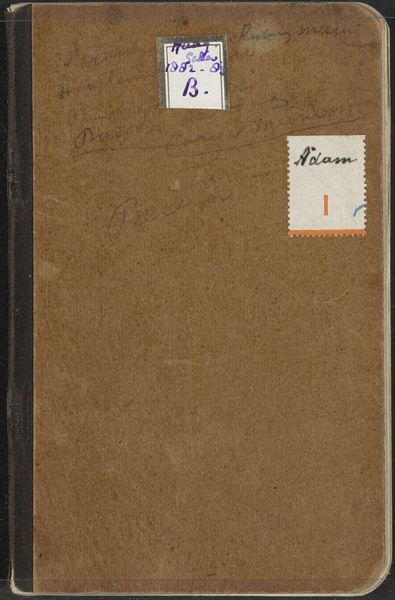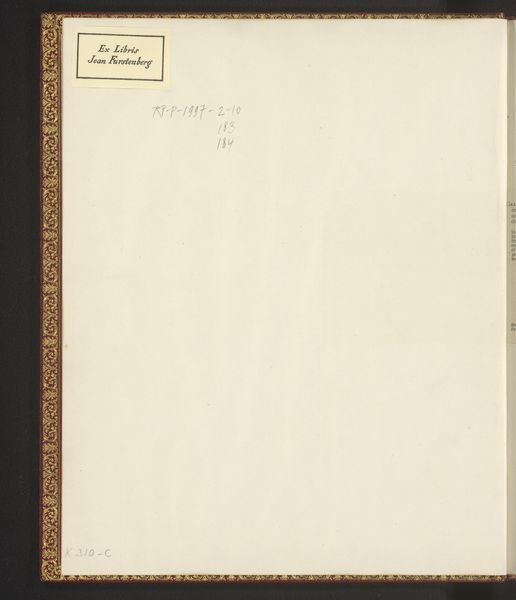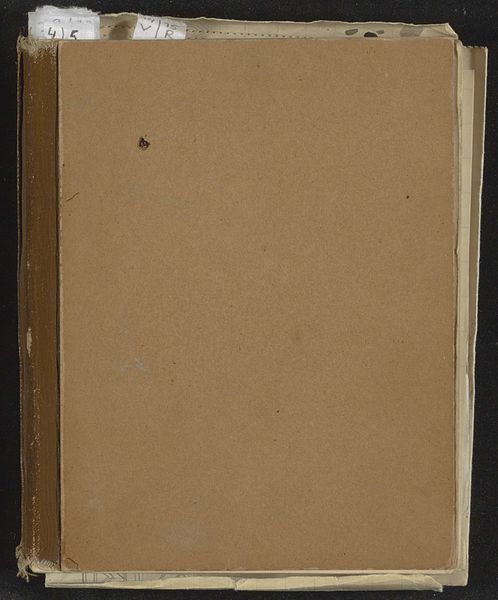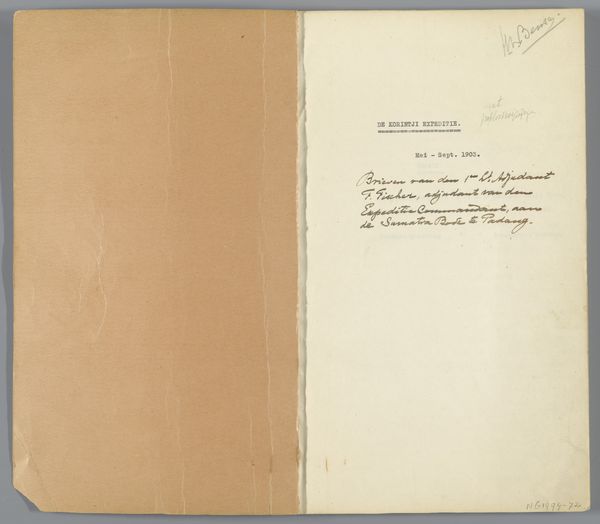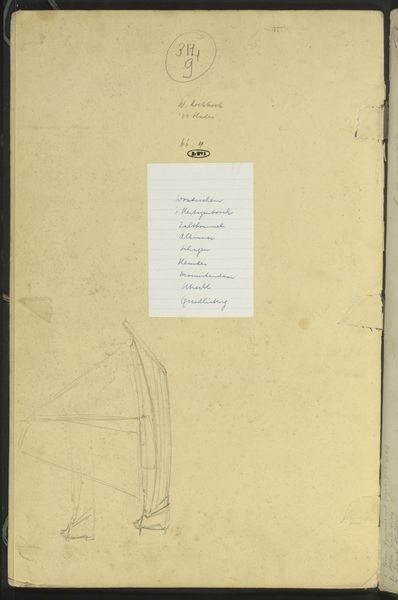
mixed-media, print, paper
#
aged paper
#
mixed-media
#
homemade paper
#
paper non-digital material
#
paperlike
# print
#
light coloured
#
personal journal design
#
paper
#
personal sketchbook
#
folded paper
#
paper medium
#
design on paper
Dimensions: height 296 mm, width 234 mm
Copyright: Rijks Museum: Open Domain
Editor: Here we have "Kaarten van de Provinciën in Nederland" by Studio Certo, dating from around 1947. It looks like it’s a mixed media piece, primarily on paper. My initial impression is one of simplicity and age. It appears fragile and gives off a historical, almost documentary feel. What do you see in this piece from a formalist perspective? Curator: The compositional elements strike me first. Note the geometric simplicity. The almost square shape of the paper, bisected by the faint vertical line on the left. Then consider the roughly rectangular text block offset towards the upper-middle portion. Observe how the off-white field creates a quiet, almost meditative space around the more visually active textual rectangle. How does this structured relationship impact your experience? Editor: I suppose the careful placement of the label gives the piece balance, even if the paper looks weathered. Are you suggesting the blank space is as important as the text? Curator: Precisely. Semiotically, what does the text tell us? It indicates maps; however, the large, nearly blank surrounding page could be as important. This absence emphasizes not only the content but the form of record keeping itself, pointing toward ideas of knowledge and how it’s presented. Editor: That’s fascinating! So, by analysing the composition, the color, and even the 'emptiness,' we gain a richer understanding of the piece. I initially saw it as a simple, old document. Curator: Precisely! The power of formalism lies in decoding these intrinsic visual cues. Every element contributes to the artwork’s unique semiotic significance. We began with an understanding of paper and script and have unearthed a quiet moment of thought.
Comments
No comments
Be the first to comment and join the conversation on the ultimate creative platform.
